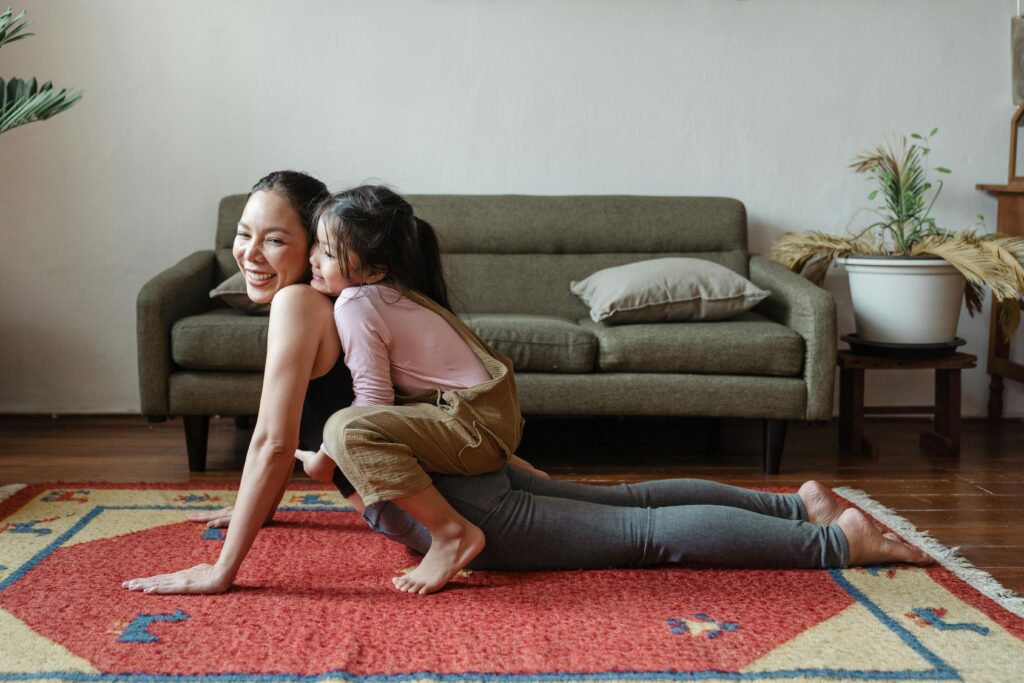For many individuals struggling with addiction, relapse is not a one-time setback — it becomes a repeated and painful cycle. A moment of hope turns into disappointment. Progress is made, only to be lost again. This frustrating pattern can leave individuals and families feeling defeated, ashamed, and unsure where to turn next.
But here’s the truth: relapse is not failure. It’s a signal that something deeper hasn’t yet been addressed — and it often means the person hasn’t received the right level or type of care.
At Om to Home in Central Florida, we specialize in breaking that cycle. Our structured inpatient detox and residential programs are designed to interrupt the patterns that lead to relapse and replace them with sustainable tools, support systems, and strategies for lasting recovery.
In this article, we’ll explore:
- Why relapse happens — and why it’s so common
- The warning signs of a potential relapse
- How structure, environment, and therapy in inpatient care make a difference
- What patients experience daily at Om to Home
- Why inpatient care gives individuals their best chance at long-term success
🔁 Understanding the Cycle of Relapse
Relapse often follows a familiar and predictable pattern. Without proper intervention, many people move through these stages without even realizing it:
1. Emotional Relapse
You’re not thinking about using yet, but you’re not practicing healthy self-care. You may feel overwhelmed, irritable, isolated, or disconnected from support.
2. Mental Relapse
The conflict begins. You start glamorizing past substance use or fantasizing about “one last time.” Part of you wants to stay sober, but part of you is considering using again.
3. Physical Relapse
You act on the thoughts — using drugs or alcohol again, often in secret or with shame.
Many individuals stuck in this loop feel like they’re beyond help. But in reality, they need a more structured, immersive level of support — which is where inpatient treatment shines.
🚨 Why Relapse Happens
Relapse is not a matter of willpower — it’s often the result of untreated triggers, emotional instability, or lack of structure. Common causes include:
- Lack of coping skills
- Poor stress management
- Exposure to drug-using environments
- Untreated mental health disorders
- Isolation and loneliness
- Overconfidence or “I can handle it now” thinking
- Unstructured time and boredom
In outpatient or at-home settings, these challenges are hard to manage alone. In contrast, a structured inpatient environment offers real-time protection, accountability, and clinical care to navigate them safely.

🏥 How Structured Inpatient Programs Break the Relapse Cycle
At Om to Home, our approach to relapse prevention is proactive, immersive, and built into every part of the day. Here’s how we do it:
1. 24/7 Supervised Environment
One of the biggest advantages of inpatient care is the controlled, substance-free setting. Patients are removed from their usual triggers and environments — giving them space to breathe, heal, and reset.
Our round-the-clock support means:
- Cravings are addressed immediately
- Emotional or mental health flare-ups are managed by professionals
- There’s no access to substances
- Isolation is replaced with connection and community
2. Structured Daily Schedule
From the moment a patient wakes up to lights out, every part of the day has intentional structure. A typical day includes:
- Morning and evening group therapy
- Individual counseling
- Recovery education classes
- Peer support meetings
- Meals and rest periods
- Movement or fitness sessions
- Wellness activities (yoga, mindfulness, journaling)
This structure eliminates “dead time” — a major risk factor for relapse — and creates momentum and predictability.
3. Relapse Prevention Education
We don’t just prevent relapse while patients are with us — we teach them how to prevent it themselves once they leave. Every patient receives:
- Education on the relapse cycle and how to identify it early
- Personalized trigger mapping and avoidance strategies
- Coping skill development for real-life situations
- Practice in roleplaying high-risk scenarios
By the time they complete the program, they have tools they can actually use in the real world — not just theories.
4. Mental Health and Dual Diagnosis Treatment
Many relapses stem from untreated or undertreated mental health issues. At Om to Home, we provide integrated care for:
- Depression
- Anxiety
- PTSD
- Bipolar disorder
- Personality disorders
Our psychiatric team manages medications, and therapists provide targeted treatment to address the emotional pain that often drives addiction.
5. Peer Support and Community Connection
Relapse thrives in isolation. Structured inpatient programs foster:
- Healthy peer relationships
- Group accountability
- Shared wisdom from others in recovery
Patients learn that they are not alone — and this shared experience often becomes one of the most powerful relapse deterrents.
6. Aftercare and Step-Down Planning
Treatment doesn’t end when a patient finishes inpatient care — and neither does relapse prevention.
At Om to Home, every patient leaves with:
- A comprehensive aftercare plan
- Recommendations for step-down care (e.g., Partial Hospitalization Programs)
- Scheduled outpatient counseling (if appropriate)
- Connection to support groups in their area
- A relapse prevention plan with emergency contacts and coping strategies
📈 How Structure Leads to Long-Term Recovery
Numerous studies have shown that patients who complete inpatient programs with strong structure are significantly more likely to:
- Remain sober long-term
- Experience fewer relapses
- Rebuild relationships and employment stability
- Improve mental and emotional health
Structure doesn’t mean rigidity — it means safety, consistency, and rhythm. These are the very things that addiction disrupts — and that recovery must restore.
💬 Real Patient Reflections
“Before Om to Home, I kept relapsing within a week of leaving detox. I finally realized I needed structure and support I couldn’t get at home. This place gave me that.”
“What helped me stay clean this time wasn’t just the detox — it was the daily schedule, the groups, and having staff who saw me start to spiral before I even noticed it myself.”
“I finally learned how to get ahead of relapse instead of waiting until it was too late. That changed everything.”

🧭 Is Structured Inpatient Care Right for You?
You may benefit from structured inpatient treatment if:
- You’ve relapsed after prior attempts at recovery
- You’ve completed detox but struggle to stay sober
- You feel overwhelmed, lost, or unsupported in outpatient care
- Your environment is full of relapse triggers
- You’re tired of starting over again and again
At Om to Home, we provide the structure and support needed to end the cycle for good.
🟢 Take the First Step Toward Breaking the Cycle
You are not alone — and you are not broken.
Relapse doesn’t mean you can’t recover. It means you deserve a different approach — one built on accountability, structure, compassion, and clinical care.
At Om to Home, we specialize in helping individuals break free from the loop of relapse and rebuild a life with purpose, direction, and strength.
Fill out our confidential “Learn More” form below to speak with a care coordinator today — or call us directly.
📞 Contact Us
Om to Home – Inpatient Detox, Residential Treatment, and Partial Hospitalization Programs
📍 1120 S Park Avenue, Apopka, FL 32703
📞 (321) 251-2240
Confidential. Compassionate. Available 24/7.



